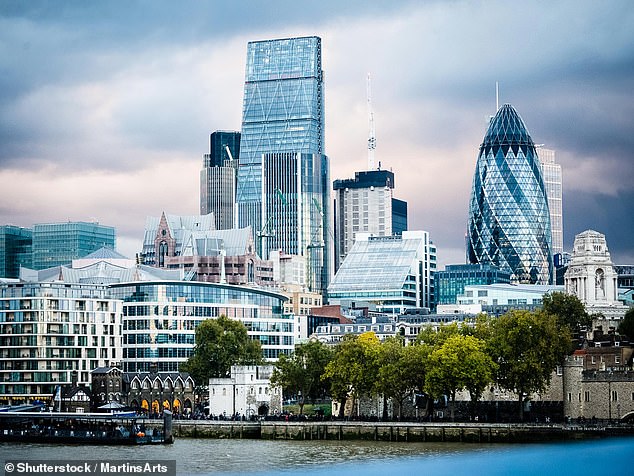ALEX BRUMMER: Private equity predators land in the UK hoping to profit from Brexit uncertainty
The arrival of Lone Star on the scene as the saviour of retirement home builder McCarthy & Stone provokes fears of a financial dystopia where the UK’s future is decided not here but by anonymous tycoons based in Texas.
In the first decade of the 21st century there was an overseas buying spree of British firms, mostly by Continental and US trade buyers.
Dutch chemical group Akzo Nobel bought the rump of ICI, custodian of Dulux paints, and has invested heavily in the brand and built a spanking new R&D campus at Felling in the north-east. Under Tata ownership the design-led Jaguar Land Rover car marques became challengers again in the luxury motoring bracket.
On the prowl: Private equity owners seek to use cheap debt to make as quick a turn as possible on their investment
Private equity owners have a different agenda. They seek to use cheap debt to make as quick a turn as possible on their investment. Shares quoted on the London Stock Exchange have become an easy target. The UK market has underperformed most advanced nations because of the shadow of Brexit.
Property is proving a soft target because of the depressing effect of Covid on rents.
The Lone Star bid for McCarthy & Stone, tainted by its past connection with rapacious Peverel, is a case in point. The £630million offer looks generous because of a 39 per cent premium to the pre-bid share price.
But it is way below where the shares traded before the pandemic. The latest private equity intervention came after Countrywide’s rambunctious boss Peter Long sought to surrender control of the estate agency – owner of Hamptons and John D Wood – to Alchemy.
Canada’s Brookfield is building a stake in British Land, one of the leading quoted real estate groups. Ever-ambitious KKR has established a bridgehead at Great Portland Estates, with a 5 per cent stake.
Under the badge of Garda World, the private equity firm BC Partners is trying its luck with a low-ball £3billion bid for security firm G4S, which has been firmly repulsed.
Off the radar, Advent, the private equity buyer of Cobham, is cutting jobs at the Dorset aerospace pioneer quietly.
Private equity has no concept of national interest. Operating behind closed doors, the returns for overseas partners and investors take priority.
It is a dispiriting prospect for Britain as we plan for a post-Brexit future.
Staley’s stand
Investment banking is not so bad after all. The valiant effort by Jes Staley to make Barclays Europe’s most effective player in the wholesale markets is paying off.
Trading revenue climbed sharply and fixed income in particular was up 23 per cent, which places it on a par with the big American players JP Morgan, Morgan Stanley and Goldman Sachs.
Running a UK bank during Covid-19 is not easy. Vast bad debt write-offs in the first half drove the share price down by 37 per cent. The third quarter was better as the UK consumer emerged from hibernation.
Quarterly profit climbed to £611million from a loss of £292million last year. The litigation and regulatory overhang of the financial crisis is fading now, and Covid is the main concern.
Barclays is pessimistic about the loss of UK output and obviously is preparing investors for the worst.
Nevertheless, bad loan provisions were lower than expected. Staley is adamant that if the Bank of England were to opt for negative interest rates it would be another blow to a sector feeling the strain.
The long debate about Barclays’ exposure to investment banking, sparked by Ed Bramson of Sherborne, is an ever-present incentive to Staley to keep pushing the envelope. But there will always be voices arguing that it’s too risky and too capital-intensive.
Staley has shown great personal staying power in the face of the whistleblower scandal and questions about past associations with the late, convicted sex offender Jeffrey Epstein. But his work will have been in vain if his successors decide that running an investment bank is not worth the effort.
Deep waters
Water is in the headlights at present with an outbreak of hostilities between the regulator Ofwat and the Competition and Markets Authority over the next five-year price settlement.
South West Water owner Pennon, meanwhile, is taking advantage of the new deal by offering customers a choice between a price cut of £20 or shares in the owner.
An amazing 52,295 people, which is the equivalent of a town the size of Paignton on the English Riviera, chose Pennon stock.
Hosepipe capitalism lives on.

